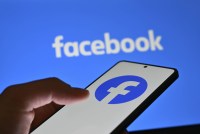Under Kennedy, America’s Health Department Is in the Business of Promoting Kennedy
Under Secretary Robert F. Kennedy Jr., the Department of Health and Human Services increasingly uses its social media channels to promote Kennedy himself and his agenda. Interviews with over 20 former and current employees provide a look inside an agency where personality and politics steer communications with the public.
La inteligencia artificial pronto influirá en que te aprueben o te nieguen tratamientos en Medicare
Siguiendo el ejemplo del sector privado de seguros, la administración Trump lanzará el próximo año un programa piloto.
AI Will Soon Have a Say in Approving or Denying Medicare Treatments
A pilot program testing the use of artificial intelligence to expand prior authorization decisions in Medicare has providers, politicians, and researchers questioning Trump administration promises to curb an unpopular practice that has frustrated patients and their doctors.
Social Security Praises Its New Chatbot. Ex-Officials Say It Was Tested but Shelved Under Biden.
Social Security, under the leadership of a tech enthusiast, rolled out an artificial intelligence-powered chatbot to answer calls. But as beneficiaries complain about glitches, lawmakers and former officials ask whether it’s a preview of a less human agency at which rushed-out AI takes the place of pushed-out government workers.
A Million Veterans Gave DNA To Aid Health Research. Scientists Worry the Data Will Be Wasted.
Retired service members donated genetic material to help answer health questions for not only others in the military but all Americans, creating one of the largest repositories of health data in the world. The Trump administration is dragging its heels on agreements to analyze it with supercomputers.
Call Centers Replaced Many Doctors’ Receptionists. Now, AI Is Coming for Call Centers.
Artificial intelligence products with lifelike voices are being marketed to schedule or cancel medical visits, refill prescriptions, and help triage patients. Soon, many patients might initiate contact with the health system by speaking not with a human but with AI.
At Social Security, These Are the Days of the Living Dead
In recent weeks, Social Security has been plagued by problems related to technology, system errors, and even the marking of living people as dead.
In Trump’s Team, Supplement Fans Find Kindred Spirits in Search of Better Health
President Donald Trump’s health team has deep financial ties to the supplements industry. Now they’re poised to boost its growth and remake the government’s approach to health.
Telehealth Companies Boost Ad Spending While Taking on More Complex Medicine
Telehealth startups including Ro and Nurx are spending millions to promote themselves as easy dispensers of medicines. Some companies offer care for birth control, sexual dysfunction, and more complex conditions, including behavioral health disorders and obesity.
Health Care AI, Intended To Save Money, Turns Out To Require a Lot of Expensive Humans
Despite the hype over artificial intelligence in medicine, the systems require consistent monitoring and staffing to put in place and maintain. Checking whether an algorithm has developed the software equivalent of a blown gasket can be complicated — and expensive.
Los sistemas de inteligencia artificial requieren una supervisión continua y una dotación de personal altamente capacitado para garantizar que funcionen bien.
TV’s Dr. Oz Invested in Businesses Regulated by Agency Trump Wants Him To Lead
Celebrity doctor Mehmet Oz recently held broad investments in health care, tech, and food companies. Were he confirmed to run the Centers for Medicare & Medicaid Services, his job would involve interacting with giants of the industry that have contributed to his wealth.
Trump lidera el escepticismo por las vacunas, y el partido lo sigue
Trump ha liderado un cambio radical en la visión de su partido sobre las vacunas, reflejado esta temporada de campaña en afirmaciones falsas de candidatos republicanos durante las primarias y en teorías conspirativas desconcertantes de voces conservadoras prominentes.
Trump Leads, and His Party Follows, on Vaccine Skepticism
Former President Donald Trump has presided over a landslide shift in Republican views on vaccines, reflected in false claims by candidates in election primaries, puzzling conspiracies from prominent conservatives, and a surge in anti-vaccine policies in statehouses.
Cyberattacks Plague the Health Industry. Critics Call Feds’ Response Feeble and Fractured.
Health care weathered more ransomware attacks last year than any other sector, and that was before a debilitating February hack of payments manager Change Healthcare. Executives, lawyers, and policymakers are worried the federal government’s response is underpowered, underfunded, and too focused on hospital security.
Oh, Dear! Baby Gear! Why Are the Manuals So Unclear?
Sure, new parents are an anxious lot. But instruction manuals for devices meant to keep the baby safe and healthy are daunting and add to the anxiety. Why are they so confusing?
Under Fire for Massive Health System Hack, Biden Team Leans on Insurers
The Biden administration has hit on a strategy to deal with the massive, industry-paralyzing cyberattack on a UnitedHealth Group unit: pressuring insurers to fix it. Federal officials have been in constant conversation with senior leaders at UnitedHealth and across the industry, including at a Monday meeting where Department of Health and Human Services and White […]
Biden Team, UnitedHealth Struggle to Restore Paralyzed Billing Systems After Cyberattack
The cyberattack on a unit of UnitedHealth Group’s Optum division is the worst on the health care industry in U.S. history, hospitals say. Providers struggling to get paid for care say the response by the insurer and the Biden administration has been inadequate.
When It Comes to Ketamine, Meta’s Posting Policy Is No Party to Decipher
Despite growing awareness that the party drug is dangerous, the social media company is open to promotion of the drug in treating mental health.
Hacking at UnitedHealth Unit Cripples a Swath of the US Health System: What to Know
Change Healthcare, a firm recently bought by insurance giant UnitedHealth Group, reportedly suffered a cyberattack. The company processes 14 billion transactions annually, including payments and requests for insurance authorizations.























